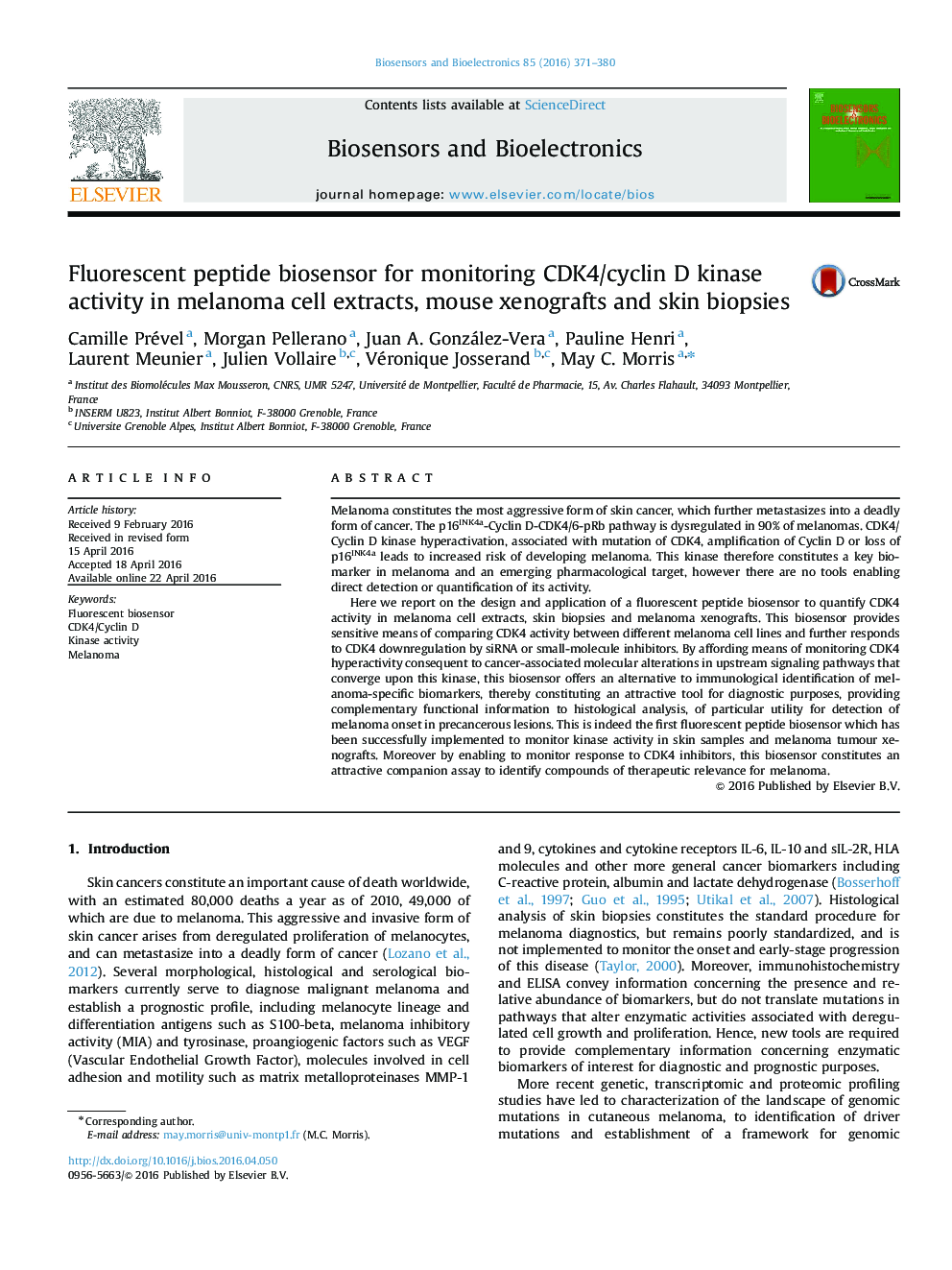| Article ID | Journal | Published Year | Pages | File Type |
|---|---|---|---|---|
| 7230424 | Biosensors and Bioelectronics | 2016 | 10 Pages |
Abstract
Here we report on the design and application of a fluorescent peptide biosensor to quantify CDK4 activity in melanoma cell extracts, skin biopsies and melanoma xenografts. This biosensor provides sensitive means of comparing CDK4 activity between different melanoma cell lines and further responds to CDK4 downregulation by siRNA or small-molecule inhibitors. By affording means of monitoring CDK4 hyperactivity consequent to cancer-associated molecular alterations in upstream signaling pathways that converge upon this kinase, this biosensor offers an alternative to immunological identification of melanoma-specific biomarkers, thereby constituting an attractive tool for diagnostic purposes, providing complementary functional information to histological analysis, of particular utility for detection of melanoma onset in precancerous lesions. This is indeed the first fluorescent peptide biosensor which has been successfully implemented to monitor kinase activity in skin samples and melanoma tumour xenografts. Moreover by enabling to monitor response to CDK4 inhibitors, this biosensor constitutes an attractive companion assay to identify compounds of therapeutic relevance for melanoma.
Related Topics
Physical Sciences and Engineering
Chemistry
Analytical Chemistry
Authors
Camille Prével, Morgan Pellerano, Juan A. González-Vera, Pauline Henri, Laurent Meunier, Julien Vollaire, Véronique Josserand, May C. Morris,
